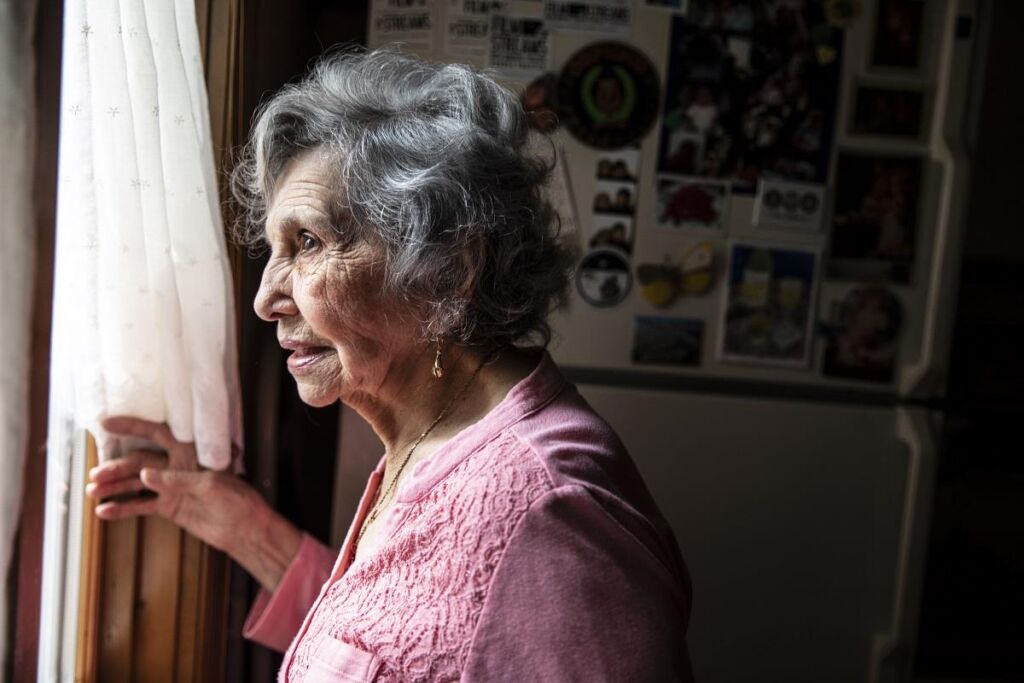
While the holiday season can be a busy and hectic time for many, it presents the perfect opportunity to reconnect with family and friends. For family caregivers, it can also be an ideal time to check in with aging loved ones who may be feeling more lonely and isolated than usual, due to COVID-19.
Whether you are planning to host a virtual celebration or a small gathering with increased safety measures, take the opportunity to assess the health and well-being of older loved ones.
The impacts of isolation and loneliness are a real concern, particularly for the aging population. As social distancing remains necessary to slow the spread of COVID-19, many are feeling the effects on their physical and mental health. In fact, earlier this year more than half of older adults (56%) reported feeling isolated from others compared to 27% in 2018, according to the University of Michigan National Poll on Healthy Aging
“The rise in feelings of loneliness and isolation in older adults over the last several months is alarming,” said Lakelyn Hogan, Ph.D., gerontologist and caregiver advocate for Home Instead®. “While home remains the safest place for seniors this holiday season, it’ll be more important than ever to stay connected with your loved ones and pay close attention to any changes to their personality or behavior.”
By understanding what social isolation is, catching it early on and getting help if needed, it can increase the likelihood that an aging adult can continue to age safely at home for the future.
So, whether you are celebrating the holidays virtually or practicing a socially distant get-together, here are a few signs that could indicate your loved one may be experiencing the effects of this crisis and could benefit from a helping hand and more consistent companionship.
5 Signs an Aging Adult is Being Impacted by Loneliness
- Lack of Communication. Have they lost interest in socializing, either virtually or in person? Do they repeat themselves or struggle to find the right words? Do they forget what they are saying mid-sentence?
- Varying Moods. Have you noticed any recent changes in their attitude? Do they seem easily flustered or unusually sad? Are they leaving voicemails or sending text messages that seem out of the ordinary?
- Changes in Appearance. Do their clothes seem rumpled or unwashed? Is their hair unkempt? Have they gained or lost a noticeable amount of weight?
- Difficulty Concentrating. Do they seem disengaged or restless? Are they having difficulty keeping up with conversation? Do they appear to have trouble hearing or ask for details to be repeated?
- Memory Loss. Are they having difficulty remembering names of family and friends? Have they forgotten recent events? Do they seem confused or overwhelmed?
In addition to these five signs, it’s important to be aware of other signs more help is needed at home – like piles of laundry or dishes, unpaid bills and missed medication. Acknowledging these signs may be difficult for both family members and older adults, but accepting that an aging loved one may need additional help early on will increase the likelihood they can continue to age safely and comfortably at home for years to come.


